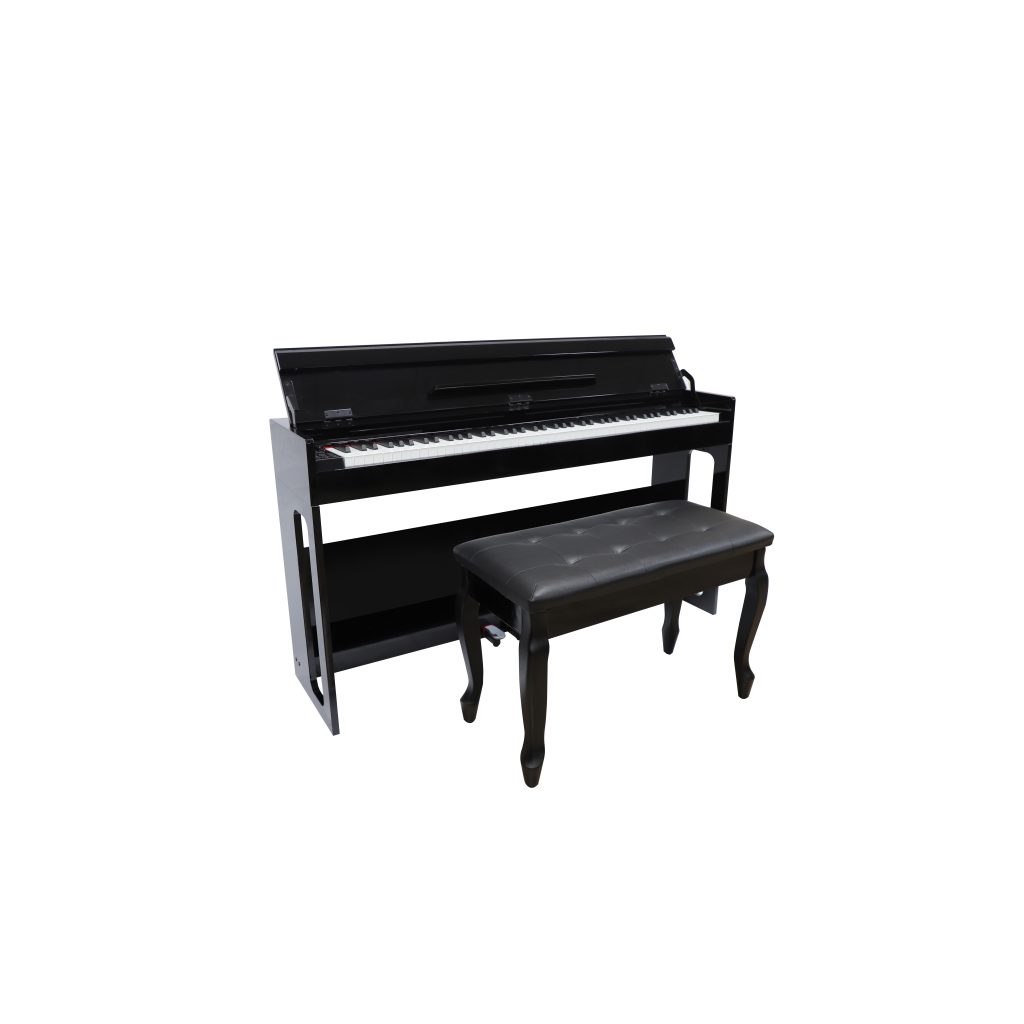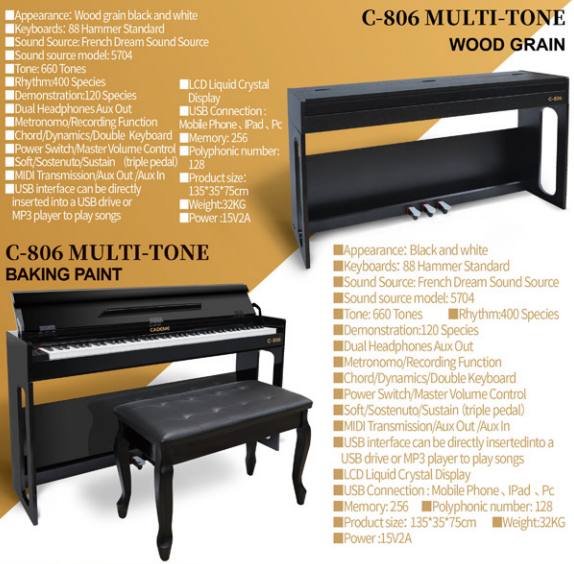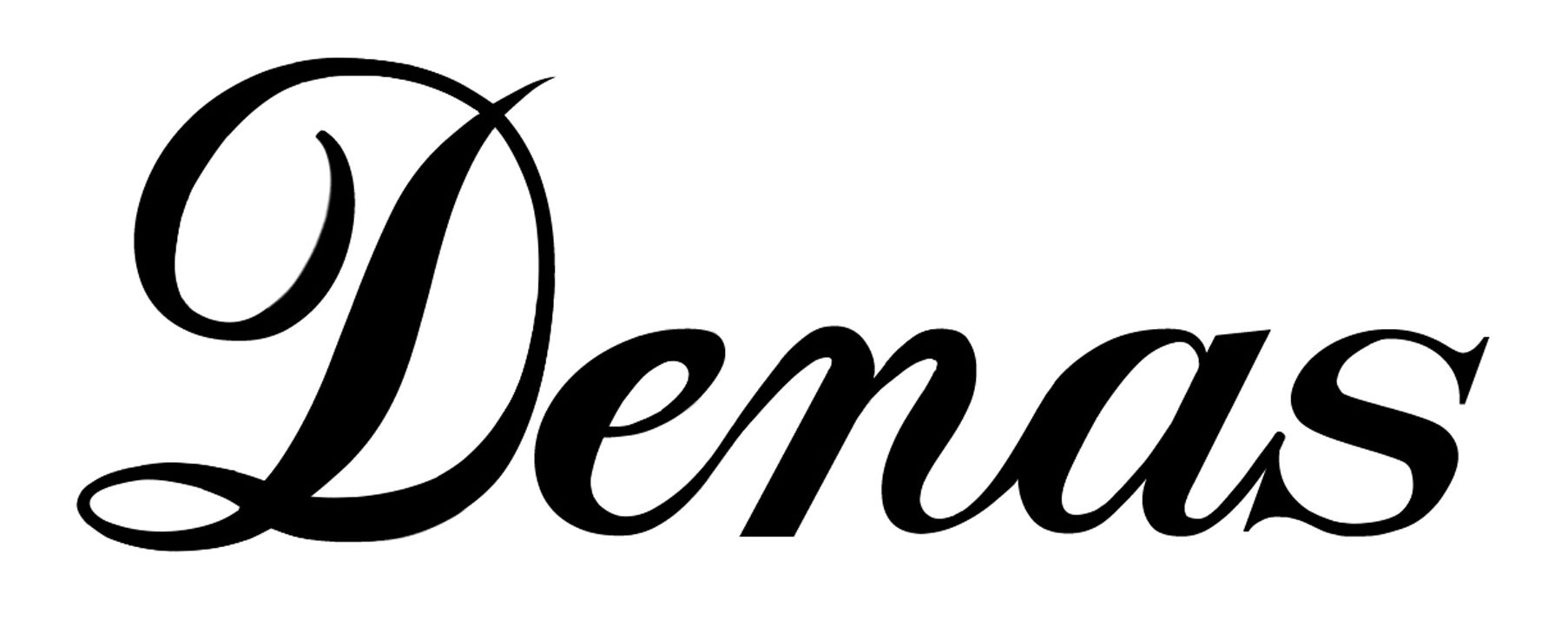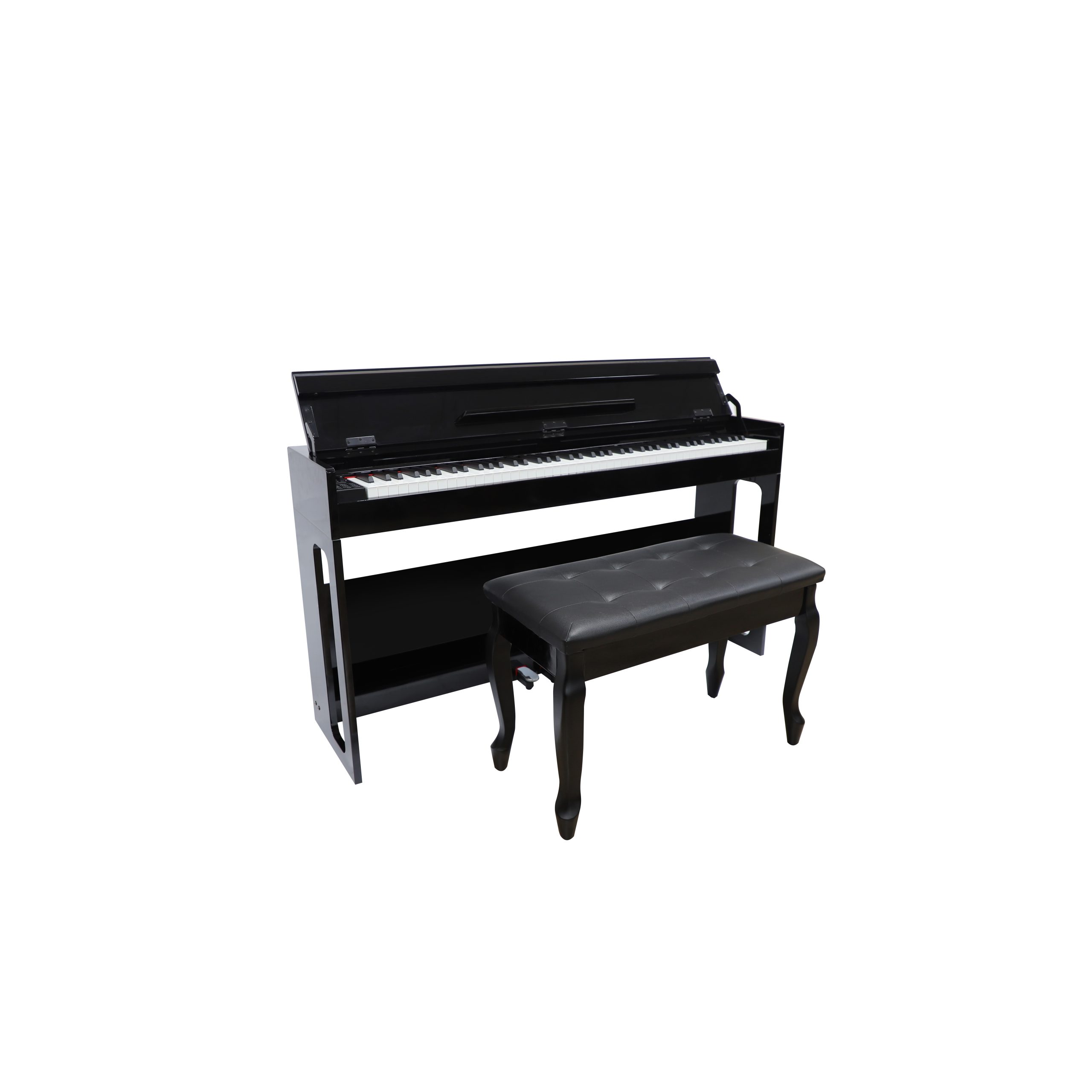Digital pianos have revolutionized the music industry by offering portability and a wide range of sound options, making them an excellent choice for live performances and band settings. Unlike traditional acoustic pianos, which are bulky and require meticulous maintenance, digital pianos provide musicians with the flexibility to perform anywhere while still delivering high-quality sound. In this article, we will explore how these features make digital pianos a must-have for stage performances and band use.
Portability: The Key Advantage of Digital Pianos
One of the most significant benefits of digital pianos is their lightweight and compact design. Unlike acoustic pianos, which can weigh hundreds of kilograms, digital pianos are designed to be easily transportable, making them ideal for musicians who frequently move between venues. Many models are built with sleek, foldable, and lightweight frames, allowing performers to set up and dismantle their instruments quickly.
For touring musicians and band members, the convenience of carrying a digital piano without requiring extensive logistical planning is invaluable. This portability also enables artists to perform at various locations, from small clubs and outdoor stages to large concert halls, ensuring they can bring their music anywhere without compromising on quality.
Diverse Sound Options for Versatile Performances
Another standout feature of digital pianos is their wide range of sound choices, making them highly adaptable to different musical genres. Unlike acoustic pianos, which have a fixed sound, digital pianos offer multiple sound presets, including:
- Grand piano tones for classical and jazz performances
- Electric piano sounds for rock and pop music
- Synthesizer effects for modern and experimental compositions
- Orchestral instruments like strings, organs, and brass for a fuller band arrangement
This versatility allows musicians to tailor their sound based on the style of music they are performing. Many digital pianos also come with layering functions, enabling players to combine multiple tones for a richer, more dynamic sound. This is particularly useful for bands, as it allows the pianist to switch seamlessly between different roles within a song.
Perfect for Live Performances: Quick Setup and Sound Adjustments
For live musicians, having an instrument that can be set up quickly and adjusted on the go is crucial. Digital pianos provide a significant advantage in this aspect due to their user-friendly interfaces and real-time sound controls. With features like:
- Volume and EQ controls for adjusting sound balance on stage
- Built-in effects such as reverb, chorus, and delay to enhance performance quality
- MIDI and USB connectivity for integration with other music production tools
- Split and dual mode to allow two different sounds to be played simultaneously
These features ensure that musicians can easily modify their sound based on the acoustics of the venue and the dynamics of their band. Unlike acoustic pianos, which require external miking for amplification, digital pianos often come with built-in speakers and direct audio output, making them seamlessly compatible with PA systems and sound mixers.
Enhancing Band Performances with Digital Pianos
In a band setting, the role of a pianist varies depending on the genre and arrangement of the music. Digital pianos allow for smooth integration within a band, thanks to their customizable sound features and connectivity options. Whether playing as the lead instrument, providing harmony, or adding background effects, digital pianos enhance the overall musical texture.
Key benefits of using digital pianos in a band include:
- Easy Synchronization with Other Instruments – Digital pianos can connect directly to amplifiers, mixers, and synthesizers via MIDI or USB, ensuring precise sound control.
- Sound Versatility – The ability to switch between different instrument sounds allows pianists to adapt quickly to different musical sections.
- Space Efficiency – Compared to grand pianos or even upright acoustic pianos, digital pianos take up much less space on stage, making them practical for small venues.
- Durability and Low Maintenance – Digital pianos do not require regular tuning, making them more reliable for frequent use in rehearsals and gigs.
Choosing the Right Digital Piano for Performances
When selecting a digital piano for live performances and band use, musicians should consider:
- Key Action and Feel – Weighted or hammer-action keys provide a more authentic piano feel.
- Number of Voices and Effects – More sound options allow greater flexibility in performances.
- Connectivity Options – Ensure compatibility with amplifiers, MIDI devices, and DAWs.
- Portability and Durability – Choose a model that is lightweight yet sturdy enough for frequent transport.
The Ultimate Choice for Live Musicians
Digital pianos have become an indispensable tool for musicians performing in live settings and bands. Their portability, diverse sound options, and stage-friendly features make them the perfect choice for professional and amateur musicians alike. Whether you’re a solo performer or part of a band, investing in a digital piano ensures that you have an adaptable and high-quality instrument that meets the demands of modern live performances.





